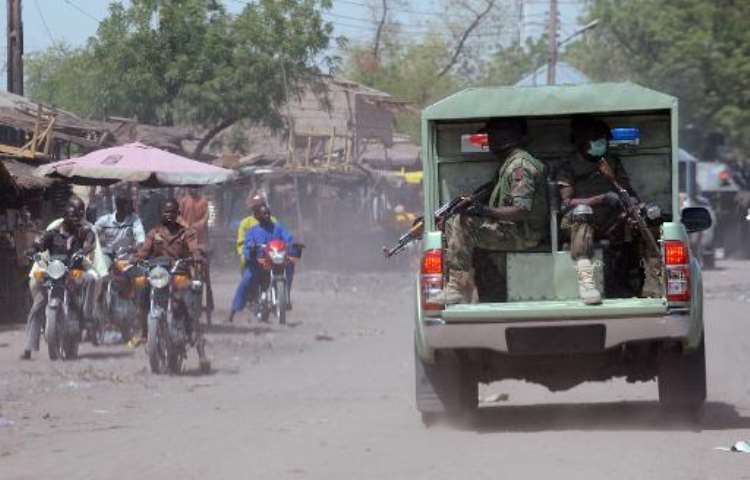 |
The global rights monitor said in a new report that formal redress has more often than not been lacking, prompting affected communities to take the law into their own hands to seek revenge.
Instead, it called on the authorities -- from the police to the state and federal governments -- to take urgent action, warning that the bloody cycle of violence would continue if left unchecked.
"Witnesses came forward to tell their stories, compiled lists of the dead and identified the attackers, but in most cases nothing was done," said Human Rights Watch's Africa director Daniel Bekele.
"The authorities may have forgotten these killings, but communities haven't. In the absence of justice, residents have resorted to violence to avenge their losses."
The extent of the violence is detailed in a 146-page report titled "'Leave Everything to God': Accountability for Inter-Communal Violence in Plateau and Kaduna States, Nigeria".
It is based on interviews with witnesses, victims and the authorities in the states, which lie in the volatile "Middle Belt" dividing Nigeria's mostly Muslim north and largely Christian south.
In all, it is thought that more than 10,000 people in the two states have died in brutal tit-for-tat violence since 1992 and several thousand since 2010 because of their ethnicity or religious identity.
The former US ambassador to Nigeria, John Campbell, has likened the situation in the two states to the "ethnic cleansing" that characterised the internecine conflict that broke up Yugoslavia.
"Formerly mixed villages or neighbourhoods (in the capital Jos) now consist of only one ethnic group," Campbell, who is now with the Council on Foreign Relations, wrote in The Atlantic magazine.
"If an outsider is detected, he risks being killed on the spot."
Systems failure
Human Rights Watch alleged that the authorities have largely failed to hold those responsible to account, despite their identities being widely known, or address the underlying cause of the tensions.
The causes of communal strife are complex, and many grievances are longstanding, but conflicts have mainly pitted Hausa-Fulani Muslims against smaller, mainly Christian ethnic groups.
Christians, who together make up the majority in the Middle Belt, complain of feeling threatened by the Hausa-Fulani, the dominant community in the north.
Some accuse the Hausa-Fulani of trying to impose Islam on the region.
The Hausa-Fulani for their part allege that the state and local governments favour the Christian groups, who are considered the original inhabitants or "indigenes" of the region.
Fulani herdsmen meanwhile allege they are denied access to grazing land for their cattle. In response, Christian farmers complain their crops are destroyed.
Each side accuses the other of resorting to violence.
The report says that even when police round up suspects, charges are more often than not quietly dropped, with prosecutions dependent on the complainants paying for the investigation themselves.
Community and religious leaders regularly pressure the authorities to drop cases against their members, while there are fears that arresting suspects could provoke further sectarian unrest, it added.
One chief magistrate in Kaduna state lamented a complete "systems failure" in the criminal justice system that was preventing those responsible for the violence from being brought to book.
As a result, both sides "prefer to leave everything to God", he was quoted as saying.
Human Rights Watch added: "These cycles of violence are not inevitable.
"Nigerian authorities can and should take urgent steps to ensure that the perpetrators of communal violence, including mass murder, are investigated and prosecuted, and that victims are provided restitution or compensation for their enormous losses."


No comments:
Post a Comment